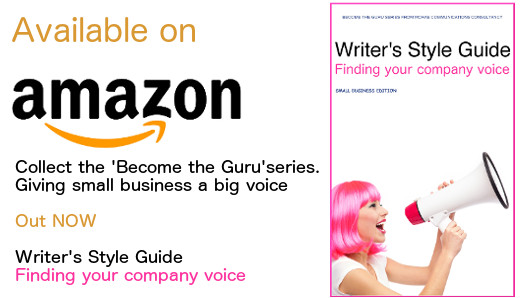 So your book is finally being published and you’re beside yourself with excitement. You’ve done it! You’ve achieved that lifelong dream! But guess what? That’s not the end of the hard work. Well – not unless you have secured a major publishing deal with one of the BIG FOUR.
So your book is finally being published and you’re beside yourself with excitement. You’ve done it! You’ve achieved that lifelong dream! But guess what? That’s not the end of the hard work. Well – not unless you have secured a major publishing deal with one of the BIG FOUR.
Now you actually have to promote your book. I know it seems cruel to have to get your hands dirty in the murky world of marketing, but if you want anyone to read the fruits of your labour you’re going to have to spread the word.
Most people won’t have the budget necessary to engage a marketing or branding guru, so I’ll give you a few titbits of free advice about effective marketing tactics that may just help you boost your audience and help you create a buzz around your book.
FREE stuff you can do
My first piece of advice is what I tell all my clients, regardless of their product, business or service. If you don’t exist online – you don’t exist.
We live in a world where Google has become the background security check. If someone hears the name of a person, or a book or a company, generally the first thing they do is Google it to find out any available information. If they don’t find what they are looking for, they won’t search any further. You’ve already put your first barrier up to a possible sale and potential loyal customer.
Nowadays a simple WordPress site can provide an extremely professional shop front for your business. WordPress is a free and open source blogging tool and a content management system (CMS) and for the most part it’s excellent. As far as I’m concerned this is a must have nowadays. When building an audience, your readers will want to know about you and the books you write and the website or WordPress platform is the ideal place for them to go. If you are not technically minded a WordPress site can seem rather daunting, but there are many simple themes and a plethora of teenagers out there only too willing to show off their skills. i won’t scare anyone by delving too deeply into this at the moment, but suffice to say I will cover this in greater detail in a subsequent post.
Social Media
As well as a website or WordPress platform you will need to ensure you are active on social media. Again, I only mention this because it’s FREE. My good friend and new author confessed she was a complete technophobe but she managed to navigate her way through the minor challenges and she was up and running with Twitter and Facebook in a matter of hours. In the space of 24 hours she had over 100 Likes. Who knows where she’ll be in a few weeks when her book is out.
Brilliant. She exists as an author online now. But there’s more I can sneakily share with you – little learnings from the world of global product launching and brand building. If you are merrily posting on Facebook or Twitter, take a few moments to think about the quality of your posts. In the case of a a book launch it’s great to have little teasers from your book to give a flavour of what’s in store – but not too much. Apart from keeping some of your powder dry (and there may be some restrictions from your publisher), you have to remember how people read online. People scan, generally in an F shape and only small amounts. Indeed when I began to work more online on websites and social media I had to reverse all I had been taught about writing ‘the message’.
In addition to monitoring the length of post I would advise using Facebook and Twitter or whatever social interaction you use, to create what is affectionally known as, the ‘Call to Action’. The Call to Action is very important in terms of selling or creating awareness. Think about what it is you actually want your reader to do? Just nod and move on? At that point you may have lost them. Perhaps you want them to buy your book? If this is the case, then add a link making it easy for the reader to find and buy your book. Normally a link to Amazon on your page will suffice. A good rule is to think about removing all possible barriers between you and the sale of your book. The more steps someone has to go to reach it, the more likely you are to lose them.
Depending on the genre of your book it may be useful to have a presence on Pinterest. Think about where your intended audience ‘meet’ online and go and pitch your stall there. For example, a community like Goodreads is a great place to get your book reviewed and exposed to potentially thousands of people. Be sure to research your target audience and then research where they discuss books such as yours.
Press Kits
I’ll write more about Press Kits in a later post but generally speaking here’s what you need to know. Press Kits are invaluable when your contacting people in the media for publicity or for sending out information in a hurry. Your press kit may be requested by retailers, book bloggers, event planners, editors or anyone else who may be interested in you or your book. Include information as follows:
Author Bio and Contact Information
You should already have an author bio to hand. If not, start working on it now – published or not. You’ll need it for your blog or website, for guest posts or stories submitted to magazines. Your author bio should be about 200 words, and it should have things that make you sound interesting and professional. You should include your name, your place of birth or where you currently live, what you do (or used to do) for a living, what you’ve written, perhaps your education (if it’s relevant), quirky hobbies, or interesting travel experiences. Basically, anything that will make you stand out. If you’ve written non fiction, include something about what gives you the knowledge/credibility or experience to write the book.
Don’t forget to include your contact information, and your agent or other representatives if necessary.
A photograph
But not a cropped grainy shot with you in the background at your granny’s 80th birthday party. You should have hi-res (300 dpi) and lo-res (72 dpi) versions, 600 pixels wide at a minimum. Make sure that you provide horizontal options and vertical options, since different magazines and media have different layout preferences. Again, I won’t scare anyone by getting too technical here, but a well-lit digital photograph will do the job.
Press Release
A press release should focus on the unveiling of your new work. It should be brief and succinct; one page should do. Include information that is newsworthy about your book or about you as an author. If you have upcoming events, it might be a good idea to omit them from your press kit press release to keep the article timely a month or two down the road. There are a few tricks to writing a newsworthy press release over and above the release of your baby into the world. Drop me a line and I’ll share a few secrets.
Sample Author Q&A
Make a list of interview questions (and responses) about you and your book. This can include questions about your background, your inspiration for writing this book, your own favourite writers, future projects, etc. This section is particularly helpful for the interviewer and bloggers who want to help you promote your work, as it’s useful and ready content for them.
Specific Information on Your Book
So many books are published every week, every month, every year so you need to talk about what makes yours different. You can describe your book in terms of its unique features. Yes it’s special to you, but what makes it the ‘must read’ book for everyone else? Why did you write this book? Did you feel there was a gap in the market for this type of story? Does the book shed new light on a common issue? Is it a topic that a lot of people can easily relate to? As the author, do you have a unique background different from most other authors? You need to convince the person reading your press kit that your story is interesting enough for their audience.
- Tip:Sometimes, when requesting your press kit, you may be asked to send in excerpts of your book as well. Ideally a few quotes or perhaps a sample chapter will do the trick. But remember, as I said before, to keep some of your powder dry.
- You may also include things like:editorial reviews, testimonials, links to relevant media content like audio and video, any awards you’ve won, etc.
Remember, a press kit doesn’t have to be fancy
The people who are requesting it just want information that will help them. Keep it simple. If you’re putting one together for the first time, I’m sure you already have some of the materials needed. Start with the items you already have and then work on adding the others as you go along. You don’t want to create a press kit at the last minute because once something exists beyond your control it has a habit of popping up everywhere.
the above points are just a taste of what can be done to help promote your book. If you would like help in marketing your book, or would just like some further information, feel free to email me at info@eviemcrae.com or visit my website create.eviemcrae.com
 Send to Kindle
Send to Kindle

